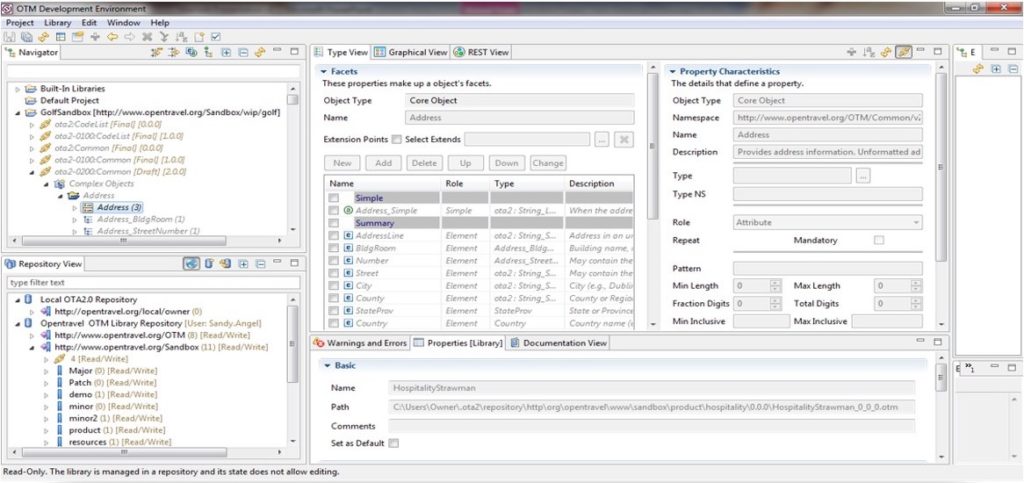OpenTravel Rolls Out Enhancements to the Developer Environment Toolkit
Best known for the globally adopted industry-standard travel specifications, OpenTravel is also home to a robust tool kit that helps all parties of the travel ecosystem leverage and enhances the existing travel messaging.
Find us on GitHub
This Open-Source toolkit – known as OTM-DE – is available for download on the OpenTravel GitHub Repo. Designed to interact directly with OpenTravel specifications, it provides dev teams with a GUI to leverage, enhance and deliver OpenTravel messages.
Before we get into what is new, let’s talk about what the tooling can do. If you are already familiar, you can skip to the list of enhancements.
What OTM-DE Offers
- Encapsulates the OpenTravel 2.0 Schema Best Practices
- Provides tools to develop OpenTravel Messaging OTM) objects and other artifacts
- Features:
- Model Designer
- Repository
- Build Automation Utilities
- Message Compiler
- JSON and OpenAPI Spec generators
- XML Schema and WSDL generators
- GUI
Enhancements
- Improved usability
- Undo
- Forward/back navigation
- Ability to display multiple views simultaneously
- More detail in the repository view improves finding relevant libraries
- Clearer view of service resource descriptions
- Increased Reliability
- Lessons from earlier releases applied to overall architecture and design
- Cleaner separation between model and GUI logic
- Improved JUNITs at the model level
- Easier Maintainability
- Designed with reusable, independent modules
- More modern framework JAVA FX not (Eclipse RPC ++)
- New Capabilities
- Improved presentation of where used and uses relationships
- More to come! – Framework created for adding new capabilities
Check out all the latest on our repo and we look forward to hearing about your implementations and feature requests!

